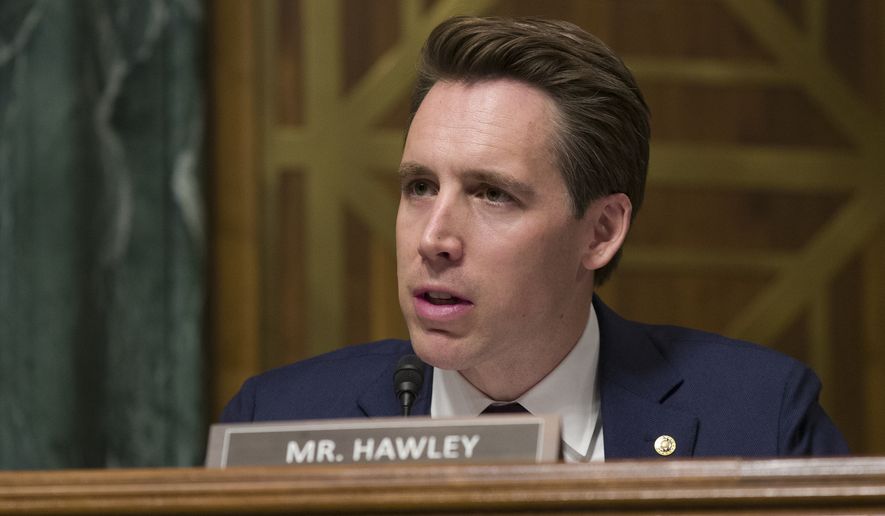Big Tech came out swinging Wednesday against a newly proposed bill by Sen. Josh Hawley that seeks to end censorship and bias on major social-media platforms.
Mr. Hawley’s legislation, the Ending Support for Internet Censorship Act, would remove the exemption from Section 230 of the Communications Decency Act, which allows internet platforms automatic immunity from liability for the content of others.
“With Section 230, tech companies get a sweetheart deal that no other industry enjoys: complete exemption from traditional publisher liability in exchange for providing a forum free of political censorship,” said Mr. Hawley, Missouri Republican, in a Wednesday statement. “Unfortunately, and unsurprisingly, big tech has failed to hold up its end of the bargain.”
Under the bill, tech giants like Facebook, Google and Twitter would be able to earn immunity by undergoing a Federal Trade Commission audit to determine whether their algorithms and policies are “politically neutral.”
The measure would only apply to the large tech companies—smaller firms would still operate under the immunity provision—but internet trade associations argued that the bill would benefit radical groups and trolls by tying the hands of platforms to delete extremist posts.
“This bill prevents social media websites from removing dangerous and hateful content, since that could make them liable for lawsuits over any user’s posting,” said Carl Szabo, general counsel at NetChoice, whose members include Facebook, Google and Twitter.
“Sen. Hawley’s bill creates an internet where content from the KKK would display alongside our family photos and cat videos,” he said in a statement.
Ed Black, CEO of the Computer and Communications Industry Association, said it was ironic that an anti-censorship bill would “require companies to get government approval to censor nefarious content—or face legal liability.”
“This is an unbelievable disregard for the essence of the First Amendment and attempt to overlay a lens of partisan politics over the communications of millions of Americans,” said Mr. Black.
Mr. Hawley, who has raised alarm over privacy, bias and monopoly issues surrounding Big Tech, said that tech companies are already censoring content.
“There’s a growing list of evidence that shows big tech companies making editorial decisions to censor viewpoints they disagree with,” Mr. Hawley said in a statement. “Even worse, the entire process is shrouded in secrecy because these companies refuse to make their protocols public.”
His bill “simply states that if the tech giants want to keep their government-granted immunity, they must bring transparency and accountability to their editorial processes and prove that they don’t discriminate.”
In Mr. Hawley’s corner was Media Research Center president Brent Bozell, who has long accused social-media platforms of targeting conservatives and called the bill “the first major step toward holding tech giants like Facebook, Google and Twitter accountable.”
“Social media companies that have routinely deplatformed conservatives and censored conservative speech should no longer enjoy the protections granted to politically neutral platforms,” Mr. Bozell said. “These tech companies claim they have no ideological bias — it is time they prove it.”
Despite the bias concerns, the right is hardly united on the issue. The free-market group Americans for Prosperity came out against it, arguing that the “misguided legislation sets the table for stricter government control over free expression online.”
“Eroding the crucial protections that exist under Section 230 creates a scenario where government has the ability to police your speech and determine what you can or cannot say online,” said AFP policy analyst Bill Easley in a statement.
Mr. Szabo warned that the measure could backfire on the GOP.
“Republicans should be very worried about Sen. Hawley giving control of the internet to the FTC, since it empowers a future Democratic administration to suppress conservative speech online,” he said.
The bill would apply only to companies with at least 30 million active monthly U.S. users; more than 300 million active monthly global users, or more than $500 million in global annual revenue.
• Valerie Richardson can be reached at vrichardson@washingtontimes.com.




Please read our comment policy before commenting.